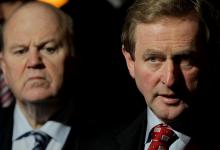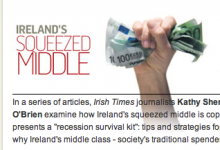Emigration: leaving through necessity or by choice?
The Irish Times headline on Saturday 17 March: “Emigrants ‘leaving by choice’” is probably one of the most misleading I have read in some time.
The contents of the article do not support the headline - we find that the Irish Times/MRBI poll on which the piece is based establishes that in fact a substantial 41% of those surveyed felt that they were forced to emigrate.








